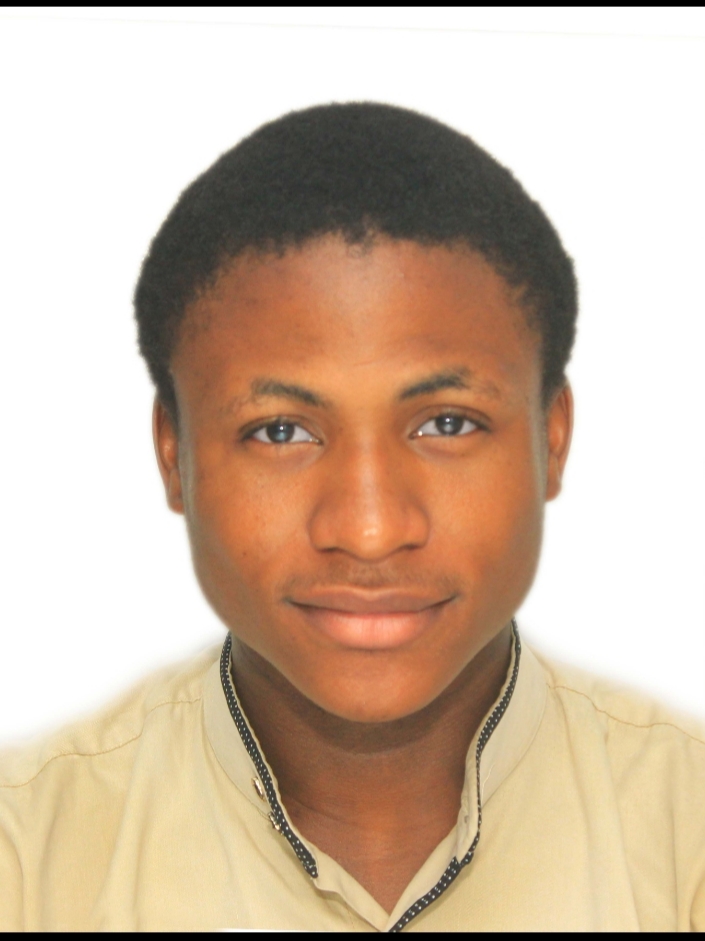
Boluwatife Adewale, a final year medical student and a member of UIMSA recently won the 2020 Sanger Prize and was a recipient of the 2021 Bayer Foundation Scientific Fellowship.
He is currently a research intern at the Neuroscience and Ageing Research Unit (NARU), Institute for Advanced Medical Research and Training, CoMUI.
Daniel: Good evening Mr. Adewale Bólúwatifẹ́. I am Animashaun Daniel, and I will be conducting this interview with you, on behalf of UIMSA Clinical Press.Everyone of us at UIMSA Press will like to congratulate you on accomplishing these ground-breaking feats.
Bolu: Thank you very much for the honour.
Daniel: Please can you tell us about yourself?
Bolu: My name is Bolu, I’m a final year medical student. I’m an aspiring clinician-scientist interested in molecular neuroscience and computational biology looking forward to completing my MBBS degree programme by June this year.
Daniel: Great! You’ve had some remarkable achievements whilst been a medical student, can you tell us some of them?
Bolu: I won the Sanger Prize in 2020 and the 2021 Carl-Duisburg Fellowship awarded by the Bayer Foundation.
The Sanger Prize entails a three-month internship at the Sanger Institute, Hinxton Cambridge UK. It’s for undergraduate students from low and middle income countries who are interested in genetics.The Carl-Duisburg Fellowship awarded by the Bayer Foundation provides travel grant for PhD and medical students to undertake research in a host institute in Germany.
Daniel: How did you get to know about these awards?
Bolu: I have a goal to contribute as best as I can to my field of interest. So, I am constantly searching for opportunities that can help me acquire the desired competencies
Daniel: How competitive were these prizes?
Bolu: I’m not sure how many people applied for the 2020 cohort of which I was the only winner. I’m aware the competition was for every low and middle income country (about 138). The previous cohort had about 400+ applicants.Bayer Foundation Fellowship had about 90 applicants all over the world and I was one of the 25 selected winners.
Daniel: Wow. That’s incredible.What do you think you did differently that made you win the award?
Bolu: The award required writing a Nature article styled article opinion article, which I later published in the African Journal of Laboratory Science titled: “Will long-read sequencing technologies replace short read sequencing technologies in the next 10 years. I believe I demonstrated in-depth understanding of the literature on the subject matter and provided an original perspective. I believe this strengthened my application for the opportunity.
Daniel: Alright, Well done . Can you tell us about the organizations you’ve been involved in as a student?
Bolu: I have been in College Research and Innovation Hub (CRIH) since 2019. I served as the Head of Programmes till late last year. CRIH has helped me acquire and develop skills in research methodology and design which have been useful for my progress so far.
Daniel: How long have you been into research? What is your advice for those that would like to become astute researchers like you?
Bolu: I’m not sure how well the word “astute” applies to me. But I have the same advice for myself as someone aspiring to be at the forefront of cutting-edge research: “find your passion, do all you can to be really good at it”.I encourage people to find opportunities to learn skills in statistics, research design and methodology. I also encourage to always be on the look out for grant opportunities, and also to seek mentorship from COMUI faculty whose work you may be interested in.
Daniel: Can you please cut soap for other uimsites that would like to win this award in the future?
Bolu: Definitely. I have been having conversations and I am happy to have more conversations with people who would like this kind of work. I believe College and Research and Innovation Hub is also a good avenue for growth for every student interested in research. We have been having this conversations and would continue to do so in order to provoke ground breaking work among Ibadan medical students.
Mind you, I have conversations with non-CRIH members too. I’m just interested in us doing meaningful work as students regardless of affiliation. I feel a general advice would not cut it. We have different backgrounds and different end-goals in mind.
Daniel: How much time did you have to prepare for these competitions?
Bolu: I had crazy deadlines to meet up with in both cases. A week for writing the essay, and even less for the grant as I was writing MB3 at the time
Daniel: Oh wow. You will be graduating soon. What would you miss about the college of Medicine and your class? Also, what are your plans post-graduation?
Bolu: I would miss “have you clerked your patient?” It makes my heart race everytime. My classmates are some of the smartest folks I have met in the world. I would miss the fun, entrepreneurial energy and the can-do spirit. They have inspired me in ways some of them do not even know. I am taking postgraduate plans one step at a time. I will be in Germany for my research fellowship later in the year. Plans for house-job and grad school are underway. We see what comes after my fellowship. It’s in God’s hands.
Daniel: Tell us a fun fact about yourself?
Bolu: Hmmmn… If you suspect I’m having a bad day in med school, send me a high school or 100 level physics or math problem.
Daniel: Last but definitely not the least, are you single or in a relationship?
Bolu : I’m sorry I think you might have missed a third option. So I prefer to self-describe as not searching. It’s been nice talking with you, Mr. Animashaun.
Daniel: The pleasure is all mine.
